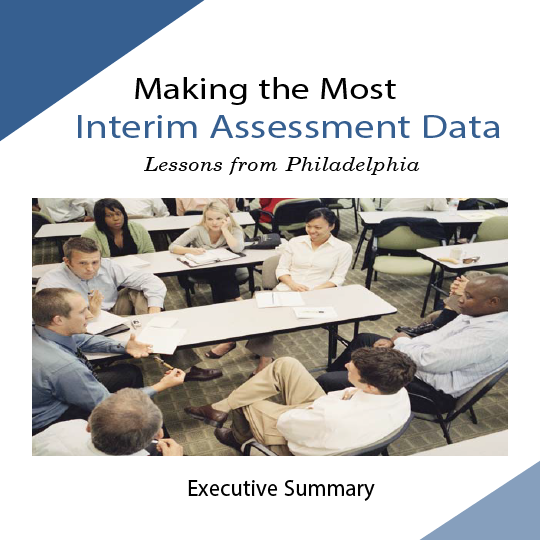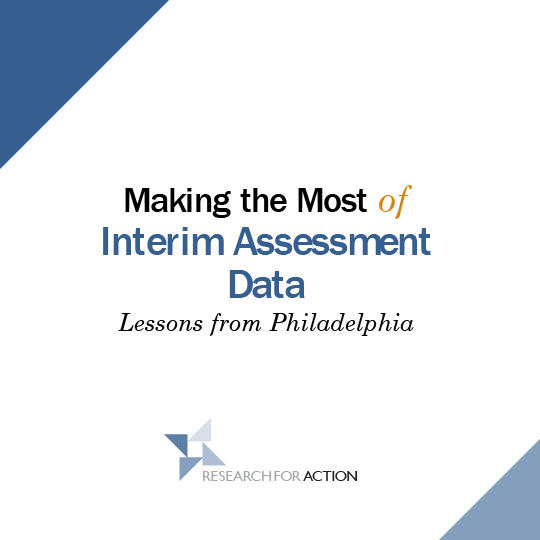RFA’s study on the use of interim assessment data focused on low-performing urban elementary and middle schools under significant pressure to improve student achievement using student data.
The study took advantage of the local school reform context in Philadelphia, where the state’s district takeover and implementation of a diverse provider model in 70 low-performing schools has introduced considerable variation in program intervention designs to guide and support data use among teachers and administrators. The study contributed to understanding the transition to reflective data use to inform instruction in low-performing urban schools. In addition, the research explored the policies and interventions that support educators in making these transitions. The study also identified the kinds of instructional decisions that result from deliberations about data and their effects on student achievement.

